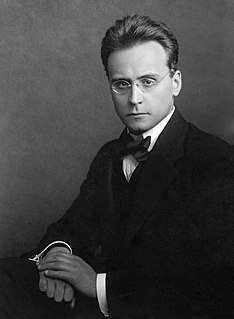A Quote by Meg Wolitzer
I think a lot of the dull parts of first drafts come from a kind of over-managing, intrusive writer who wants to direct traffic. The idea of taking out the parts that the reader could infer is very liberating, and it's weirdly part of radicalizing your work: it allows you to go to new places fast.
Related Quotes
You make good work by (among other things) making lots of work that isn't very good, and gradually weeding out the parts that aren't good, the parts that aren't yours. It's called feedback, and it's the most direct route to learning about your own vision. It's also called doing your work. After all, someone has to do your work, and you're the closest person around.
I always write too long in the beginning, then it is a matter of going through it over and over again on subsequent drafts, looking for anything that slows down the narrative. It can be hard, cutting out parts I love, but I try to make the book as tight as possible so that the reader doesn't get bored.
So one time when I was working in this motel one of the toilets leaked and I had to replace the flapper ball. Here's what it said on the package; I kept it till I knew it by heart: 'Please Note. Parts are included for all installations, but no installation requires all of the parts.' That's kind of my philosophy about men. I don't think there's an installation out there that could use all my parts.
The way AI complements people's work, it actually creates a lot of new jobs, a lot of demand. For example, if a automatic visual inspection technology helps spot flaws in manufacturing parts, I think that in some cases, this does create a lot more demand for people to come in to rework or to fix some of the parts that an AI has found to be flawed.
When I think of a lot of the players I admire, they could always play their parts without hiding behind distortion and sustain. Put the time in. Hear your mistakes. Yeah, it sucks, it's humbling, it makes you want to throw the guitar out the window. But if you work on your mistakes, they'll eventually go away, and you'll become a strong player.
It is easier for the reader to judge, by a thousand times, than for the writer to invent. The writer must summon his Idea out of nowhere, and his characters out of nothing, and catch words as they fly, and nail them to the page. The reader has something to go by and somewhere to start from, given to him freely and with great generosity by the writer. And still the reader feels free to find fault.
One of the most useful parts of my education as a writer was the practice of reading a writer straight through - every book the writer published, in chronological order, to see how the writer changed over time, and to see how the writer's idea of his or her project changed over time, and to see all the writer tried and accomplished or failed to accomplish.
There was recently a story out that I turned down a role in a major franchise. That's not true. I refused to audition for it. I didn't get the part. I didn't even go in because I thought that the part was just a repackaged version of the parts I played before in these young adult films - sort of moody, masculine, but sensitive and all this kind of thing. It was just a repackaged, rather dull thing.






































